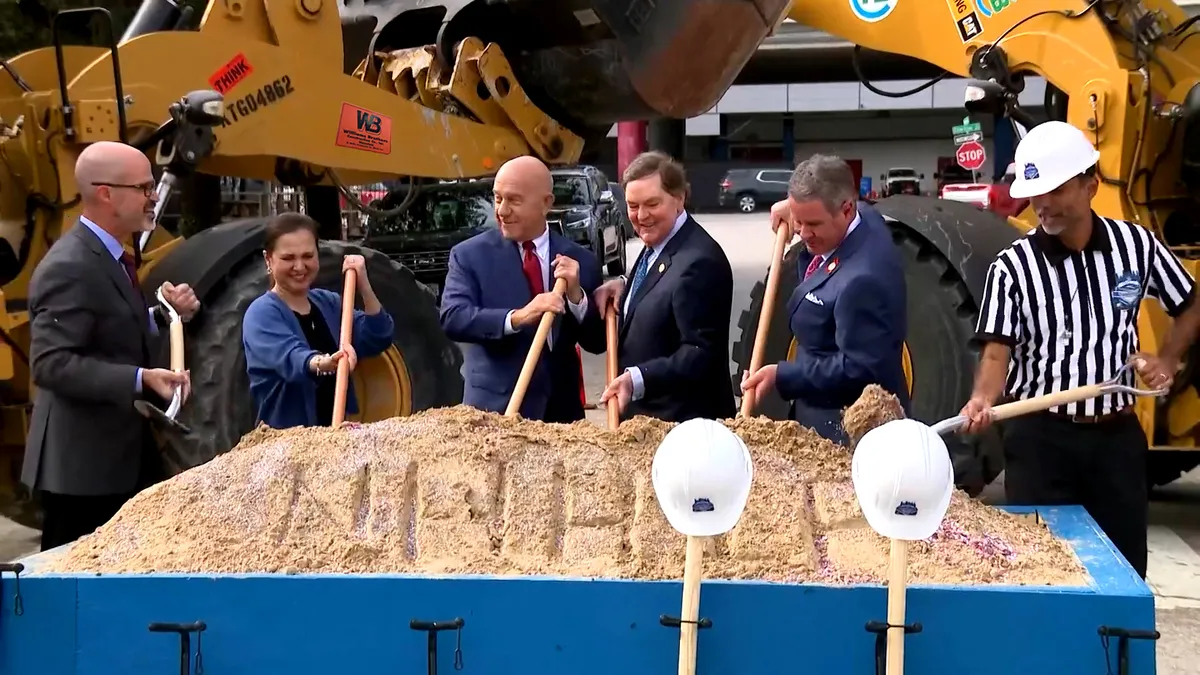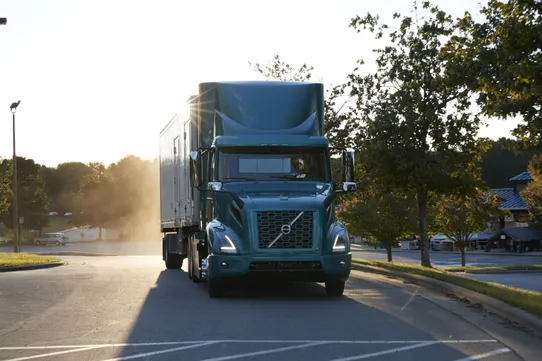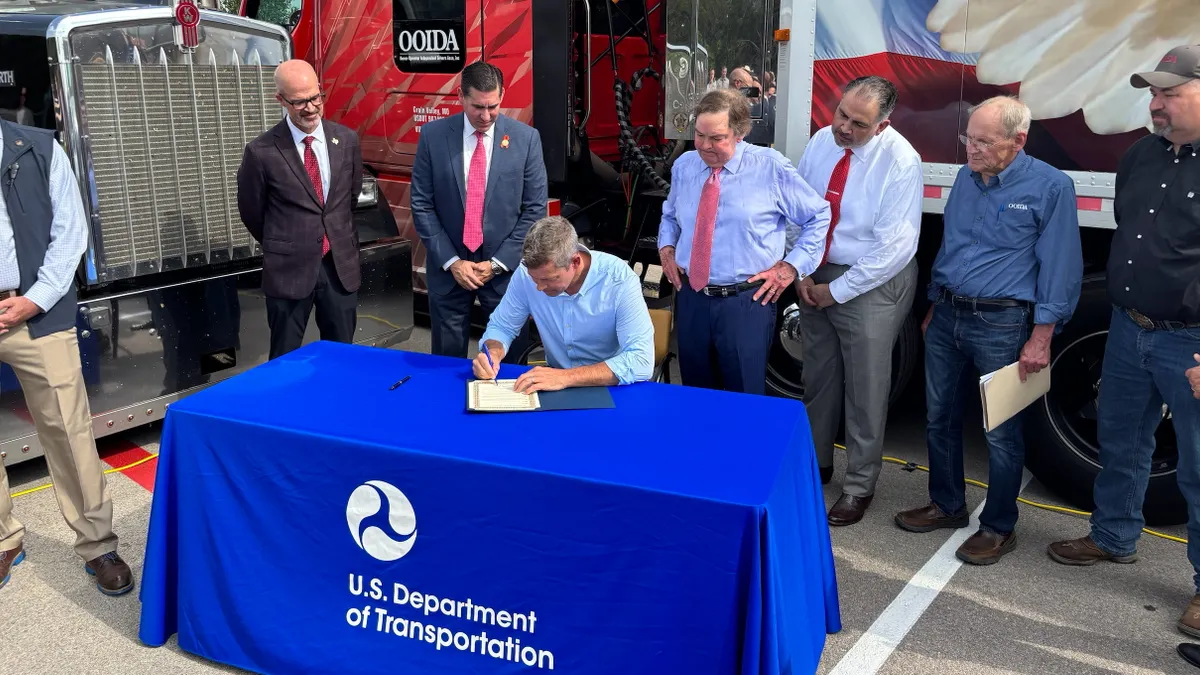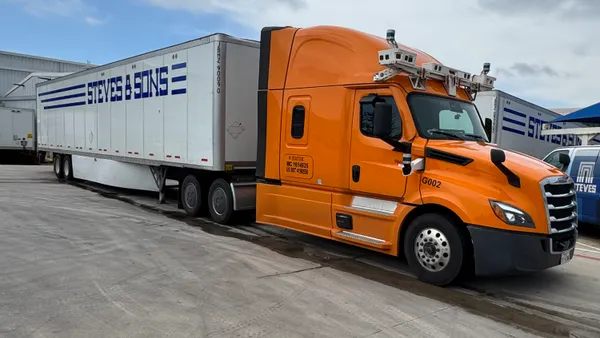Dive Brief:
- One of Texas’ biggest infrastructure projects, the $13 billion I-45 expansion project, broke ground this month near Houston, according to a news release from Texas DOT. The entire effort is expected to take 18 years, with completion slated for 2042.
- The long-delayed North Houston Highway Improvement project aims to enhance capacity and mobility and improve safety along I-45 from I-69 to Beltway 8 North, per the release. The plans also seek to make the corridor more resilient to flooding, which is a major concern in the Houston area in light of destructive storms like Hurricane Harvey and Tropical Storm Imelda.
- Work involves rerouting I-45 through downtown Houston, adding lanes and water retention infrastructure and rebuilding the freeway system in that area. Texas DOT is spearheading the project in collaboration with the city of Houston, Harris County, the Harris County Flood Control District and other agencies.
Dive Insight:
In the planning stages since 2002, the sprawling project will be completed in three segments made up of smaller projects, according to the project website. Work is beginning with Segment 3 — which is divided into eight phases at a total cost of about $11 billion — to reconstruct 12.3 miles of interstate around downtown Houston. Work is starting with these two projects:
- Segment 3B-1, starting now, entails the installation of box culverts to direct stormwater to detention ponds in order to enhance flood resiliency, per the release. This phase is expected to be completed by 2027 and has a budget of $121 million. Houston-based Harper Brothers Construction is building this part, Texas DOT spokesperson Danny Perez said in an email.
- Segment 3B-2 is set to begin in January and to be completed by 2030, according to the release. Builders will construct new mainlanes, frontage roads and enhance bike and pedestrian infrastructure on I-69 between SH 288 and I-45. Its estimated cost is $695.5 million. Williams Brothers Construction of Peoria Heights, Illinois, is building this section, according to Perez.
Segments 1 and 2 remain under discussion in ongoing community meetings, with construction not expected to begin until after 2030, according to Fox 26. Segment 1, which is unfunded and is not actively in detailed design, is expected to cost $907 million. The price tag for Segment 2 is $1.6 billion, per the project website.
The project has not been without controversy. Opponents raised concerns that the expansion would displace hundreds of residents in historically Black and Latino neighborhoods and worsen air quality in the area, which sparked a civil rights investigation that put the project on hold in 2021. That was resolved in 2023 after Texas DOT pledged $30 million to help displaced residents relocate, and to look for ways to reduce the project footprint “that would not compromise the integrity and functionality of the purpose and need of the project,” according to the agreement.
Although some planners say the project is needed to accommodate the area’s population growth, detractors argue highway expansion ultimately leads to more traffic. Plus, the estimated price tag has risen from $9 billion to $13 billion, according to Texas DOT.
Flush with funding from the Infrastructure Investment and Jobs Act as well as voter-approved initiatives, Texas is going big on road building. In 2022, the state’s DOT announced a record $85 billion for roadway construction and other transportation efforts over the next 10 years as part of its 2023 Unified Transportation Program, which directs federal and state funding to projects.
















